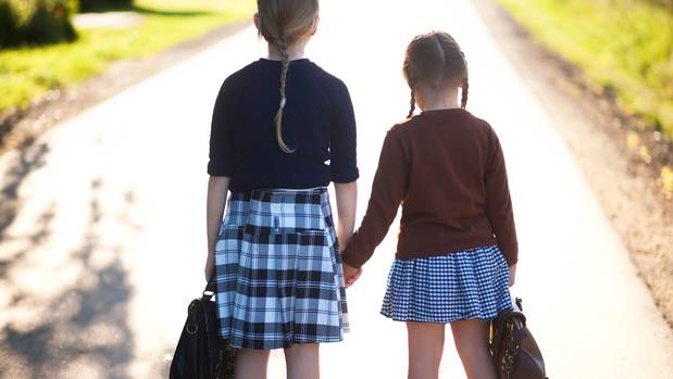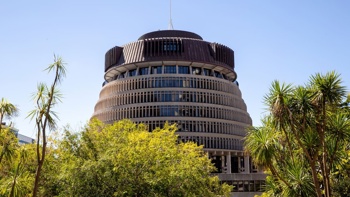
An Australian High Court case involving a Kiwi mother may set an international precedent over how to determine the legal definition of a parent in the era of artificial insemination.
Susan Parsons and her wife Margaret have been battling Robert Masson* for almost five years over his right to access to his biological daughter, known in court documents as B.
The women sought to relocate from Newcastle, Australia, to Parsons' birth country, New Zealand, from early 2014 but Masson objected.
Under the Hague Convention a child cannot be taken by a parent from a member country to another member country to live without the permission of the other parent.
Parsons grew up in New Zealand and left in her 20s, living mostly in Australia for the past 30-plus years.
She met Masson, a gay man, in 1990 and they were close friends for more than 25 years.
During a holiday to New Zealand for Parsons' mother's 70th birthday in 2006 they discussed Parsons' idea to have a baby together.
A court judgment from 2017 shows Masson stated he would only father a child if he could co-parent it because he had been abandoned by his own father.
However Parsons', then 40, met Margaret, some 10 years her senior, and began a relationship with her just as she and Masson were attempting to conceive by private, informal artificial insemination.
Masson was caught off guard when Margaret was at Parsons' home for the second attempt in December 2006.
Margaret used a syringe to inseminate Parsons and the pair would later say they were in a de facto relationship at the time.
Being in a de facto relationship at the time of conception would give Margaret claim to parentage of the baby, a girl born in September the next year.
But Justice Margaret Cleary, in her judgment in October 2017, did not accept the relationship was de facto at that stage, only developing, albeit fast.
Several months after the birth, by which time Masson had moved from Sydney to Newcastle to be near his daughter, the women asked Masson to father another child but he declined.
A second girl, known as C, was born to Parsons in 2008 through an American sperm donor programme, and Masson continued his role as father and co-parent with B and later C.
The two girls came to know him as "daddy", Parsons as "mummy" and Margaret by her name.
Masson's new partner Greg became known by his name and Masson's mother was known as "Nana".
After Masson objected to the relocation, the parties tried to work out a parenting plan but by early 2015 Masson's time with the girls was reducing.
By October 2015 the women filed court papers to make Margaret the intended parent of both children, replace Masson's name on B's birth certificate with Margaret's and relocate to New Zealand.
Masson obtained a stop order on international travel against the two girls which wasn't lifted when the women gained consent to return to New Zealand for the Christmas holidays.
They were stopped by the Australian Federal Police at the airport because the children were on the restricted list for removal from Australia.
"Unsurprisingly Susan and Margaret were upset and angry. They felt controlled and betrayed," Cleary said in her judgment.
Margaret responded in January 2016 with an application to reduce the time Masson had with the children, and an order that he be restrained from acting as a parent to either of the girls including at events, in front of friend's parents and at school.
In July the women took the children to New Zealand for Parsons' mother's 80th birthday and soon after that her father died.
The girls were then enrolled in a school in New Zealand for a period, but on return to Australia the battle grew bitter. Margaret had been sick with cancer, depression and anxiety.
In February 2017, after Parsons' mother died, the women sought further restraints on Masson including from taking photos of the children while in the bath or naked, posting images of them on the internet, attending their school, and from Greg or his family referring to the children as members of their family.
Cleary heard evidence over five days ending in April 2017 and ruled that Masson was the father of B, and Margaret the intended parent of C, and that the women could not relocate to New Zealand.
The women have appealed that decision and the case, concerning the legal parentage of a child born via sperm donation, is to be heard this year in Australia.
La Trobe University lecturer in law Hannah Robert and Law School professor Fiona Kelly said in an article recently on The Conversation, the case was significant because only a parenting order decision can determine whether the family can relocate to New Zealand.
"B's case is significant because at its heart is a curly question: what does it mean to be a legal parent?"
Should the court consider the circumstances of the child's conception, birth, genetic relatedness; who have functioned as the child's parents so far and whether the child's perspective is relevant, are all questions up for consideration.
*The judgment was published under the pseudonyms Masson, Parsons and Anor.
Take your Radio, Podcasts and Music with you









